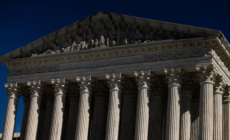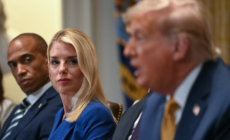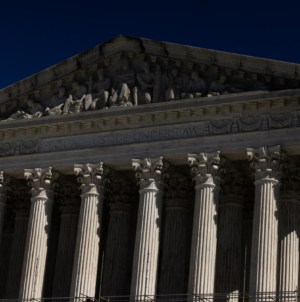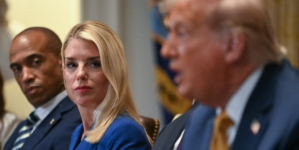-
Supreme Court Deals Blow to Republican Immigration Law in Florida - 3 mins ago
-
Jeffrey Epstein’s Brother Reacts to Trump Administration’s Review of Case - 38 mins ago
-
Body found inside a Goodwill donation bin in Pasadena - 41 mins ago
-
X CEO Linda Yaccarino Says She Is Leaving Elon Musk’s Platform - 44 mins ago
-
$1 Billion Washington, DC, Rail Bridge Project Moves Forward - about 1 hour ago
-
Fireworks warehouse explosion: Authorities search home of CEO - about 1 hour ago
-
Israel Launches New Ground Incursion in Lebanon, Raising Fears for Truce - about 1 hour ago
-
Vikings Linked to Major Roster Move Ahead of Training Camp - 2 hours ago
-
Body scanners? Drug-sniffing dogs? Virtual mail? L.A. County wants contraband crackdown inside juvenile hall - 2 hours ago
-
A Dark-of-Night Flood Escape at the River Inn in Texas - 2 hours ago
Trump Plan Would Tie Some Drug Prices to What Peer Nations Pay
President Trump will sign an executive order on Monday aimed at lowering some drug prices in the United States by aligning them with what other wealthy countries pay, he said on Truth Social on Sunday evening.
The proposal he described, which alone cannot shift federal policy, is what he calls a “most favored nation” pricing model. Mr. Trump did not provide details about which type of insurance the plan would apply to or how many drugs it would target, but he indicated that the United States should pay the lowest price among its peer countries.
“Our Country will finally be treated fairly, and our citizens Healthcare Costs will be reduced by numbers never even thought of before,” he wrote in his social media post.
Any such plan will most likely be subject to challenges in court, and it is not clear whether it will pass legal muster, especially without action by Congress.
In his first term, Mr. Trump tried unsuccessfully to enact a version of this idea for Medicare, the health insurance program that covers 68 million Americans who are over 65 or have disabilities. That plan would have applied only to 50 drugs, administered at clinics and hospitals, that are paid for by Medicare. A federal court blocked it, ruling that the administration had skipped steps in the policymaking process.
The pharmaceutical industry bitterly opposes the idea, which would almost certainly cut into its profits, and has been lobbying against it as discussions of the policy have regained steam in Washington in recent weeks. Companies have warned that such a policy would lead them to spend less on research, depriving patients of new medicines.
“Government price setting in any form is bad for American patients,” Alex Schriver, an official at the drug industry’s main lobbying group, PhRMA, said in a statement. He added, “Policymakers should focus on fixing the flaws in the U.S. system, not importing failed policies from abroad.”
Mr. Trump’s embrace of the idea sets him apart from most Republicans, who have tended to be skeptical of government price setting. Democratic lawmakers have proposed versions of the idea.
Ameet Sarpatwari, an expert in pharmaceutical policy at Harvard Medical School, said that Mr. Trump was tapping into an idea that had “populist appeal.”
Mr. Trump has long complained that the United States pays much more than other wealthy countries do for the same drugs. And he is right. In the United States, prices for brand-name drugs are three times as high, on average, as those in peer nations.
That is in spite of the fact that much of the research that leads to new drugs takes place in American laboratories and hospitals.
Drugmakers generate a substantial majority of their worldwide profits from sales in the United States and typically design their business strategy around the U.S. market.
Pharmaceutical companies argue that the higher prices in the United States come with an added benefit: Industry-funded analyses have found that patients in the United States get medicines faster, and with fewer insurance restrictions, than those in other countries.



















